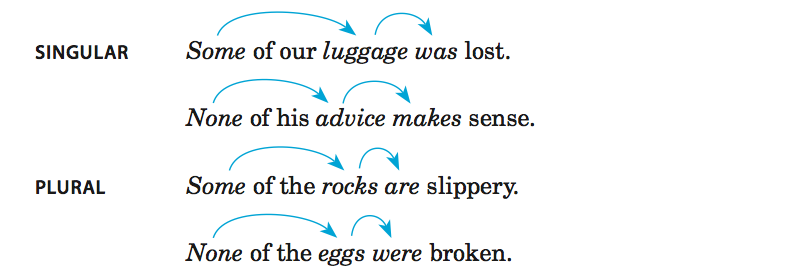Agreement with indefinite pronouns
Indefinite pronouns are pronouns that do not refer to specific persons or things. The following commonly used indefinite pronouns are singular.
| anybody | each | everyone | nobody | somebody |
| anyone | either | everything | no one | someone |
| anything | everybody | neither | nothing | something |
Many of these words appear to have plural meanings, and they are often treated as such in casual speech. In formal written English, however, they are nearly always treated as singular.



The subjects of these sentences are Each and Nobody. These indefinite pronouns are third-person singular, so the verbs must be has and was.
A few indefinite pronouns (all, any, none, some) may be singular or plural depending on the noun or pronoun they refer to.

note: When the meaning of none is emphatically “not one,” none may be treated as singular: None [meaning “Not one”] of the eggs was broken. Using not one is sometimes clearer: Not one of the eggs was broken.